Founding a Science of the Spirit
14 lectures, Stuttgart, August 22 to September 4, 1906 (CW 95)
These lectures offer a fine introduction to the whole of Steiner’s teaching. He speaks of the fundamental nature of the human being in relation to the cosmos, the evolution of the Earth, the journey of the soul after death, reincarnation and karma, good and evil, the modern path of meditative training, as well as giving answers to individual questions.
Throughout the text, Steiner emphasizes the scientific exposition of spiritual phenomena. As he says in his final lecture, “The highest knowledge of mundane things is thoroughly compatible with the highest knowledge of spiritual truths.”
This volume is a translation from German of Vor dem Tore der Theosophie (GA 95). Previous translation: At the Gates of Spiritual Science
C O N T E N T S:
Introduction by Brien Masters
1. The Being of Man (Aug. 22, 1906)
2. The Three Worlds (Aug. 23, 1906)
3. Life of the Soul in Kamaloka (Aug. 24, 1906)
4. Devachan (Aug. 25, 1906)
5. Human Tasks in the Higher Worlds (Aug. 26, 1906)
6. Child Development and Education: Karma (Aug. 27, 1906)
7. Workings of the Law of Karma in Human Life (Aug. 28, 1906)
8. Good and Evil: Individual Karmic Questions (Aug. 29, 1906)
9. Evolution of the Earth (Aug. 30, 1906)
10. The Evolution of Mankind up to Atlantean Times (Aug. 31, 1906)
11. The Post-Atlantean Cultural Epochs (Sep. 1, 1906)
12. Occult Development (Sep. 2, 1906)
13. Oriental and Christian Schooling: Initiation (Sep. 3, 1906)
14. Rosicrucian Schooling—Interior of the Earth—Earthquakes and Volcanos (Sep. 4, 1906)
Answers to Audience Questions (Sep. 2, 1906)
Answers to Audience Questions (Sep. 4, 1906)
Notes and References
About the Author
Rudolf Steiner (1861–1925) was born in the small village of Kraljevec, Austro-Hungarian Empire (now in Croatia), where he grew up. As a young man, he lived in Weimar and Berlin, where he became a well-published scientific, literary, and philosophical scholar, known especially for his work with Goethe’s scientific writings. At the beginning of the twentieth century, he began to develop his early philosophical principles into an approach to systematic research into psychological and spiritual phenomena. Formally beginning his spiritual teaching career under the auspices of the Theosophical Society, Steiner came to use the term Anthroposophy (and spiritual science) for his philosophy, spiritual research, and findings. The influence of Steiner’s multifaceted genius has led to innovative and holistic approaches in medicine, various therapies, philosophy, religious renewal, Waldorf education, education for special needs, threefold economics, biodynamic agriculture, Goethean science, architecture, and the arts of drama, speech, and eurythmy. In 1924, Rudolf Steiner founded the General Anthroposophical Society, which today has branches throughout the world. He died in Dornach, Switzerland.



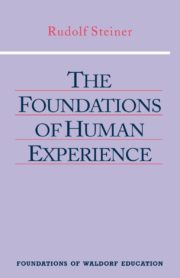



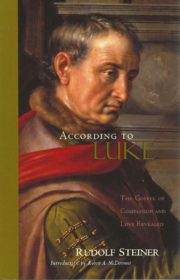

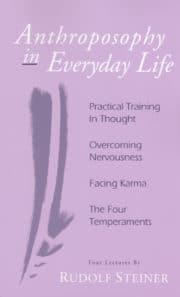
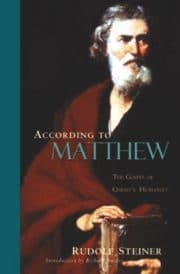
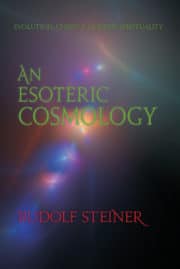


kdouglass (verified owner) –
This book is for the Anthroposophist that has spent years studying RS’s work – his books, his lectures, &tc, – who has gained a fairly solid understanding of Spiritual Science, who has struggled through gathering puzzle pieces of RS’s wisdom and teaching and wished for one “simple” series of lectures that, from start to finish, provide a summarized yet complete perspective of Spiritual Science as provided by, taught by, Rudolf Steiner. In essence, it fills in the gaps and connects the dots. Very highly recommended either as a Spiritual Science “handbook” or an introduction to Spiritual Science.